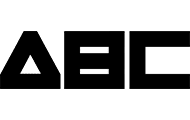Search Engine Optimization
SEO, also known as organic search engine optimization, revolves around optimizing your website to improve its visibility and ranking in search engine results. It encompasses a range of techniques such as keyword research, content creation, website optimization, and building authoritative backlinks. The primary goal of SEO is to generate organic, non-paid traffic to your website by appealing to search engine algorithms.
One of the significant advantages of SEO is its long-term sustainability. Once your website is optimized effectively, it can consistently generate organic traffic over time without incurring ongoing advertising expenses. Additionally, SEO builds trust and credibility as users tend to rely on organic search results more than paid advertisements. However, SEO requires a substantial investment of time, effort, and expertise. Results may take several months to materialize, especially in competitive markets where ranking high in search results is challenging.
Pay-Per-Click Advertising
PPC advertising, on the other hand, allows businesses to place paid advertisements in search engine results or other websites. With PPC, you pay a fee each time someone clicks on your ad. The key advantage of PPC is its immediate visibility and quick results. It offers businesses the opportunity to target specific keywords, demographics, and geographic locations, tailoring ad campaigns to reach their desired audience effectively. The level of control provided by PPC is another major benefit. Businesses can set their budget, closely monitor ad performance, and make real-time adjustments to optimize campaigns for maximum return on investment.
Furthermore, PPC platforms like Google Ads offer various ad formats, including text ads, display ads, and video ads, providing flexibility and versatility for marketing campaigns.
However, PPC can be costly, particularly for highly competitive keywords, and it requires ongoing investment to maintain ad visibility. Additionally, PPC drives immediate traffic but does not directly impact organic search rankings or long-term visibility.
SEO or PPC, Which Digital Marketing Strategy Suits You Better
Determining the best strategy for your business goals depends on several factors. Firstly, consider your budget and immediate objectives. If you have a limited budget and need instant visibility, PPC may be a suitable choice. Conversely, if you have more time and resources available, investing in SEO can yield sustainable results in the long run. Secondly, analyze your target audience and their online behavior. Are they more inclined to trust organic search results or click on paid advertisements? Understanding your audience’s preferences can guide your decision-making process. Thus choosing advanced PPC or SEO agency is preferable to achieve your goals within expected result.
Ideally, a balanced approach that combines SEO and PPC can yield optimal results. By leveraging the strengths of both strategies, businesses can maximize their online visibility and capture a broader audience. Implementing SEO techniques alongside targeted PPC campaigns can help achieve immediate visibility while building a strong organic presence for long-term success.


